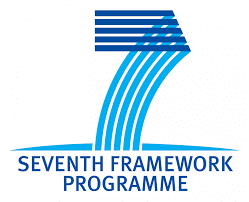INSOTEC – International Socio-Technical Challenges for Implementing Geological Disposal
INSOTEC was a three-year project specifically established to address the social and technical challenges of geological disposal. The project analysed data from 14 EU states to understand current radioactive waste management design and implementation capacity as well as to identify any gaps. The results of INSOTEC were intended to help guide governments and institutions in the implementation of radioactive waste management and could ultimately provide solutions to both specific and general challenges in the field.
Overview
Project Dates: 01/03/2011 – 30/06/2014
Project Status: Finished
Project Website: https://sites.google.com/a/insotec.eu/insotec/home
The aim of INSOTEC was to analyse the interplay between technical and socio-political challenges for implementing geological disposal and to advise on how these could be addressed. This was done within the broader context of how radioactive waste management strategies are defined (by technical experts and by society), and how geological disposal fits into these strategies.
Researchers working as part of the INSOTEC project took the role of ‘critical experts’, reflecting on the development of disposal technology and its governance, with the aim of contributing to continuous technical innovation in this field. An emphasis was placed on studying ‘the social within the technical’, rather than ‘the social around the technical’. That is to say, the emphasis focused on participation not only as a way to foster democratic values, but also to contribute to the creation of new knowledge and the identification of new solutions as a result of bringing in alternative perspectives, and how this could, in turn, contribute to technical choices.
As part of the project, reports detailing the current state of radioactive waste management in different EU countries were compiled. This led into the creation of an overview of the socio-political challenges that relate to the technical aspects of geological disposal. Additional reports on international governance associated with radioactive waste management were also produced. From the data collated, four aspects of geological disposal were identified for further analysis: reversibility and retrievability, siting, safety and technology transfer.
Moreover, the project team underlined the importance of widening research on radioactive waste management to integrate the social aspects of science and technology as well as to identify socio-political requirements. It called for more integrated and interdisciplinary research projects focusing on radioactive waste management and geological disposal; undertaken by bringing together researchers from natural sciences, social sciences, humanities and engineering.
Objective
Research for the INSOTEC project focused on situations and issues where the relationship between geological disposal as a technology and its (future) social environment is still unstable, ambiguous and controversial, and where negotiations are taking place in terms of problem definitions and preferred solutions. As a first step to identify the most striking issues, country reports were prepared. These addressed the main socio-technical challenges in 14 countries (Belgium, Canada, Czech Republic, Finland, France, Germany, Hungary, Netherlands, Slovenia, Spain, Sweden, Switzerland, UK, USA) by analysing how national programmes integrate societal ‘boundary conditions’ (including concerns about safety, but also for example political and economic constraints) with the environmental, technical and regulatory boundary conditions for geological disposal facility design. Following a cross-national analysis of these findings, the following topics were identified for further research:
- reversibility and retrievability;
- siting;
- demonstrating safety; and
- technology transfer.
Research was structured into four work packages, these were:
- Work Package 1: which provided a review of national and international radioactive waste management focusing on the correlation of socio-political and techno-scientific challenges and whether or not they are acknowledged and dealt with as such.
- Work Package 2: which consisted of an assessment of mechanisms regarding the interaction of social and technical challenges through a number of case studies within the above-mentioned topics of siting (3 case studies); technology transfer and transfer of socio-technical innovations (4 case studies); the issue of reversibility and retrievability (3 case studies); and the demonstration of safety (5 case studies).
- Work Package 3: which looked at arenas where socio-technical combinations on radioactive waste management are formed through the co-production of knowledge between different actors. For this reason, networks or spaces were explored where people and organisations from various backgrounds interact with each other and create knowledge through a process of dialogue. A particular case study was the Implementing Geological Disposal of Radioactive Waste Technology Platform.
- Work Package 4: which linked the research activity to the practice of radioactive waste management and geological disposal by offering concluding reflections and recommendations.
In addition to these four research work packages, there were three support work packages dedicated to communication and dissemination activity, the organisation of seminars, and project management.


